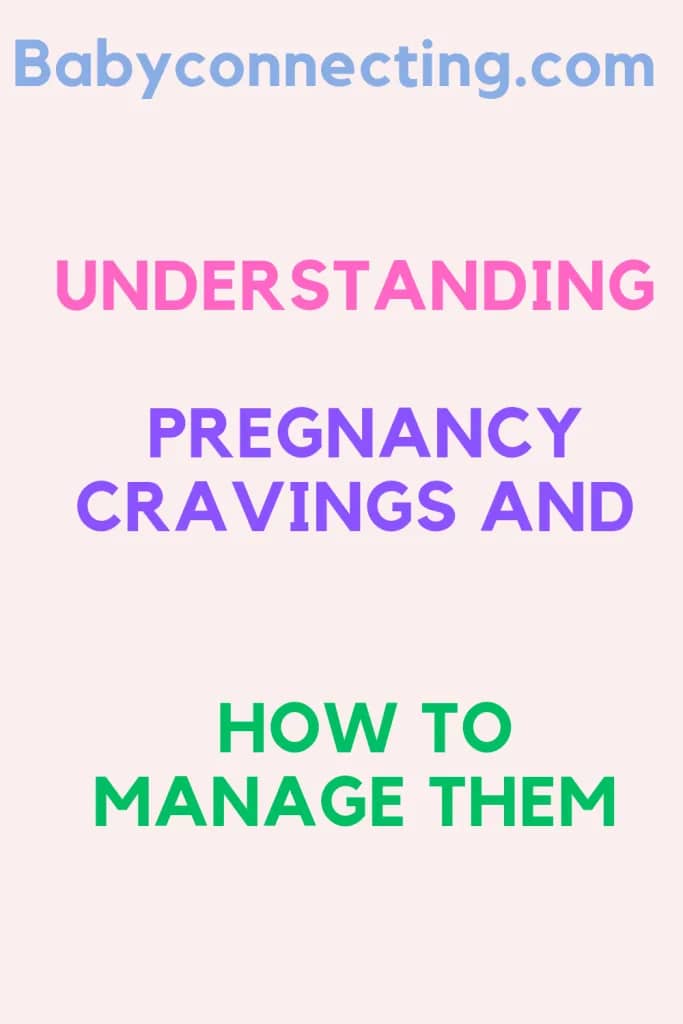Understanding Pregnancy Cravings and How to Manage Them

Pregnancy cravings are one of the most common (and sometimes puzzling) experiences for expectant mothers. From pickles and ice cream to more unusual combinations, cravings can range from delightful to downright strange. While they’re often harmless, it’s important to understand why cravings happen, what they mean, and how to manage them for a healthy pregnancy. This guide explores the science behind pregnancy cravings and offers practical tips to keep them in check.
1. What Are Pregnancy Cravings?
Pregnancy cravings are intense desires for specific foods that many women experience during pregnancy. They can appear as early as the first trimester and typically peak during the second trimester. Cravings vary widely and may include:
- Sweet foods like chocolate or pastries.
- Salty snacks like chips or pretzels.
- Sour or tangy flavors like pickles or citrus fruits.
- Unusual combinations, like peanut butter with pickles.
Some women even crave non-food items, a condition known as pica (e.g., dirt or chalk), which requires medical attention.
2. Why Do Pregnancy Cravings Happen?
The exact cause of pregnancy cravings isn’t fully understood, but several factors may contribute:
Hormonal changes: Pregnancy hormones like estrogen and progesterone can influence your sense of smell and taste, leading to stronger food preferences.
Nutritional needs: Cravings may signal your body’s need for specific nutrients, such as calcium, iron, or sodium.
Emotional factors: Stress, anxiety, or even cultural expectations around pregnancy can influence cravings.
Increased blood flow: Changes in circulation may heighten your senses, making certain foods more appealing.
While cravings are normal, they’re not always an indicator of what your body needs, so it’s essential to approach them mindfully.

3. Common Pregnancy Cravings and What They Mean
Here are some of the most common pregnancy cravings and their potential underlying causes:
Chocolate: Your body may be seeking magnesium or a quick energy boost.
Pickles: Craving salty, tangy foods could indicate a need for sodium or electrolytes.
Ice cream: This might be tied to a calcium deficiency or a desire for comfort food.
Citrus fruits: A craving for sour foods could signal a need for vitamin C.
Spicy foods: Some women crave the endorphin rush from spicy foods, while others find the heat soothing for nausea.
While these interpretations can be insightful, they’re not definitive, and it’s always a good idea to maintain a balanced diet.
4. How to Manage Pregnancy Cravings
Cravings can be intense, but managing them is crucial for maintaining a healthy pregnancy. Here are some strategies:
4.1. Prioritize Balanced Meals
- Eating balanced meals helps regulate your blood sugar and prevents cravings from spiraling out of control.
- Include a mix of protein, healthy fats, and complex carbohydrates in every meal.
- Add nutrient-rich foods like fruits, vegetables, whole grains, and lean proteins to your diet.
- Avoid skipping meals, as hunger can intensify cravings.

4.2. Listen to Your Body
While not all cravings need to be indulged, some can provide important cues about your body’s needs.
- If you crave salty foods, ensure you’re staying hydrated and getting enough electrolytes.
- If you crave sweets, opt for natural alternatives like fresh fruit or yogurt with honey.
- Satisfy cravings in moderation to avoid overindulging.
4.3. Opt for Healthy Alternatives
Substitute less nutritious cravings with healthier options:
- Craving ice cream? Try frozen yogurt or a smoothie made with frozen bananas.
- Want chips? Go for air-popped popcorn or baked vegetable chips.
- Need chocolate? Choose dark chocolate with at least 70% cocoa for added antioxidants.
Healthy swaps can satisfy your cravings while providing essential nutrients.
4.4. Plan Ahead
Having healthy snacks on hand makes it easier to manage cravings:
- Keep pre-cut fruits, nuts, and whole-grain crackers in your kitchen or bag.
- Prep meals in advance to avoid reaching for unhealthy takeout.
- Pack snacks when you’re on the go to resist impulse purchases.
Planning ahead ensures you’re ready to tackle cravings without compromising your diet.
4.5. Stay Hydrated
Dehydration can sometimes masquerade as hunger or cravings.
- Aim for at least 8–10 glasses of water per day.
- Add slices of lemon, cucumber, or berries to your water for a refreshing twist.
- Herbal teas (like ginger or chamomile) can also help keep you hydrated and curb cravings.
Staying hydrated is key to managing cravings and supporting overall health.
4.6. Practice Mindful Eating
Mindful eating can help you understand your cravings and make healthier choices:
- Pay attention to why you’re craving certain foods. Are you hungry, bored, or stressed?
- Eat slowly and savor each bite, which helps you feel satisfied with smaller portions.
- Avoid eating directly from packages—portion out snacks to avoid overeating.
Mindfulness helps you enjoy your cravings without overindulging.
5. Handling Unhealthy Cravings
While it’s okay to indulge occasionally, consistently giving in to unhealthy cravings can lead to:
- Excessive weight gain.
- Gestational diabetes.
- Nutrient imbalances.
To handle unhealthy cravings:
- Set limits for indulgences, such as once or twice a week.
- Distract yourself with activities like walking, reading, or calling a friend.
- Seek support from your partner or loved ones to stay accountable.
If cravings become overwhelming, speak with your healthcare provider for guidance.
6. Dealing with Unusual Cravings (Pica)
Some pregnant women develop pica, a condition where they crave non-food items like dirt, clay, or chalk. While the exact cause is unknown, pica may be linked to nutrient deficiencies like iron or zinc.
If you experience pica:
- Do not consume non-food items, as they can be harmful to you and your baby.
- Speak with your doctor immediately to address potential deficiencies and receive appropriate treatment.
- Professional guidance is essential for managing pica safely.
7. Understanding Food Aversions
Alongside cravings, many pregnant women experience food aversions, where certain foods become unappealing. These aversions can make it challenging to maintain a balanced diet.
To cope with food aversions:
- Experiment with different cooking methods to make disliked foods more palatable.
- Find nutrient-rich substitutes for foods you can’t tolerate (e.g., spinach instead of kale, or tofu instead of chicken).
- Focus on small, frequent meals to ensure you’re meeting your nutritional needs.
- Balancing cravings and aversions requires flexibility and creativity.
8. The Role of Culture and Environment
Cultural and environmental factors can influence your pregnancy cravings:
- Foods you grew up eating may feel comforting and desirable.
- Media portrayals of “classic” pregnancy cravings (like pickles and ice cream) may shape your expectations.
- Family and friends’ suggestions or cravings can also impact your preferences.
Recognizing these influences can help you differentiate between true cravings and external triggers.
9. The Science of Cravings vs. Hunger
It’s essential to distinguish between cravings and genuine hunger:
Cravings: Intense desires for specific foods, often tied to emotions or sensory triggers.
Hunger: A physical need for nourishment, typically satisfied by any food.
When a craving strikes, ask yourself:
Am I truly hungry, or am I just in the mood for something specific?
Would a healthy snack satisfy me, or do I need that exact food?
Understanding this difference helps you make more mindful choices.
10. When to Seek Professional Help
If cravings or eating habits during pregnancy become problematic, consult your healthcare provider. Signs that you may need help include:
- Intense cravings for non-food items (pica).
- Overwhelming cravings that interfere with a balanced diet.
- Significant weight gain or difficulty maintaining a healthy weight.
Your doctor or a registered dietitian can provide personalized advice to support your health and well-being.
Conclusion
Pregnancy cravings are a natural and often enjoyable part of the journey. By understanding their causes and practicing mindful management, you can satisfy your cravings while maintaining a healthy, balanced diet.
Remember, cravings are temporary, but the habits you form during pregnancy can have lasting benefits for you and your baby. Embrace this unique experience, and don’t hesitate to seek support if you need it.


